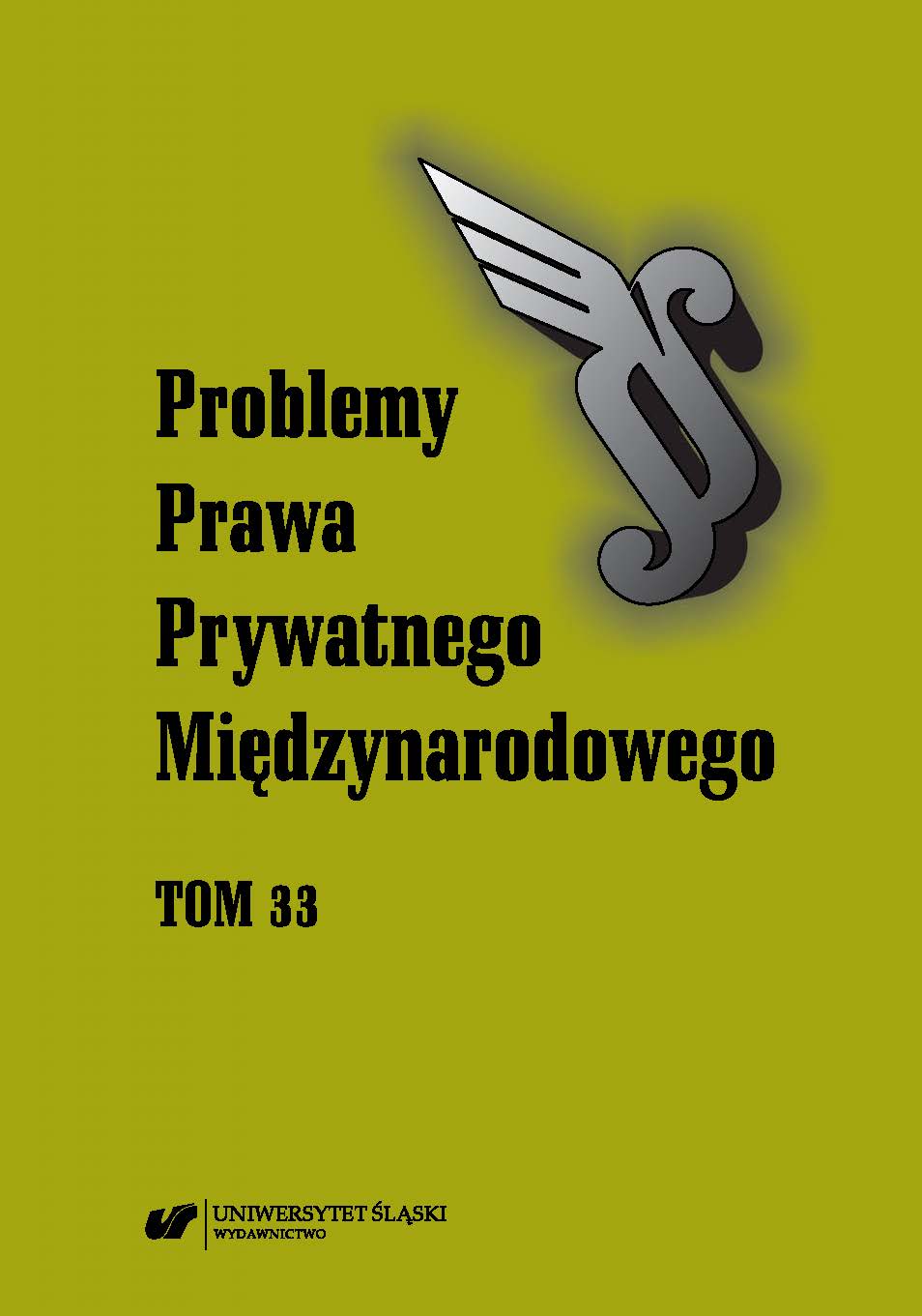Czy do zakresu statutu formy pełnomocnictwa należy udział świadka potwierdzającego czynność mocodawcy własnym podpisem? Glosa do postanowienia Sądu Najwyższego z dnia 13 stycznia 2022 r. (III CZP 22/22)
Does Participation of a Witness Confirming the Principal’s Action with His Own Signature Fall within the Scope of the Law Applicable to the Form of the Power of Attorney? A Note to the Judgment of the Supreme Court of 13 January 2022 (III CZP 22/22)
Author(s): Jacek GóreckiSubject(s): Law, Constitution, Jurisprudence
Published by: Wydawnictwo Uniwersytetu Śląskiego
Keywords: power of attorney; the form of the power of attorney; witness to the legal action; the law applicable to the form of the legal action; qualification
Summary/Abstract: The District Court in Kielce asked the Supreme Court to resolve the followinglegal question: “Does the participation of a witness, confirming the principal’s actionwith his signature, belongs — pursuant to Article 25(1), second sentence, of the Act of4 February 2011 Private International Law (i.e. Journal of Laws 2015, item 792) — tothe scope of the law applicable to the form of the power of attorney granted in the State ofIllinois (USA) concerning the transfer of ownership of real property located in Poland?”.The Supreme Court refused to deal with the question, but indicated at the same timethat, in the light of Articles 23 and 25 PIL Act, the applicable law for the assessmentof a power of attorney is the law of the State of Illinois being the law of the place whereit was made (the law of the place where the legal act was performed — lex loci actus).Furthermore, the Court pointed out that in posing the question, the Regional Court didnot make exhaustive findings as to the content of the applicable law.The decision of the Supreme Court raises unease. In particular, doubts concern theCourt’s finding that, for the purposes of resolving the legal issue presented to it, it isnecessary to first prejudge the meaning and function of the requirement under considerationand the reasons for its establishment, as well as the consequences of the failureto comply with it under the law applicable to the form. The legal issue presented to theSupreme Court could have been resolved on the basis of the qualification made againstthe background of Article 25(1) PIL Act. For it was not necessary to undergo a detailedThe District Court in Kielce asked the Supreme Court to resolve the followinglegal question: “Does the participation of a witness, confirming the principal’s actionwith his signature, belongs — pursuant to Article 25(1), second sentence, of the Act of4 February 2011 Private International Law (i.e. Journal of Laws 2015, item 792) — tothe scope of the law applicable to the form of the power of attorney granted in the State ofIllinois (USA) concerning the transfer of ownership of real property located in Poland?”.The Supreme Court refused to deal with the question, but indicated at the same timethat, in the light of Articles 23 and 25 PIL Act, the applicable law for the assessmentof a power of attorney is the law of the State of Illinois being the law of the place whereit was made (the law of the place where the legal act was performed — lex loci actus).Furthermore, the Court pointed out that in posing the question, the Regional Court didnot make exhaustive findings as to the content of the applicable law.The decision of the Supreme Court raises unease. In particular, doubts concern theCourt’s finding that, for the purposes of resolving the legal issue presented to it, it isnecessary to first prejudge the meaning and function of the requirement under considerationand the reasons for its establishment, as well as the consequences of the failureto comply with it under the law applicable to the form. The legal issue presented to theSupreme Court could have been resolved on the basis of the qualification made againstthe background of Article 25(1) PIL Act. For it was not necessary to undergo a detailedanalysis of the provisions of the Illinois Power of Attorney Act and to determine the role ofa witness to the granting of a power of attorney regulated by these provisions. The participationof witness in the legal act performed by the principal falls within the scope of thelaw applicable to the form of the legal act within the meaning of Article 25(1), sentences1 and 2 PIL Act. The role of a witness in the case under consideration is to confirm withhis/her signature that a power of attorney has been granted in his/her presence and thatthe principal has affixed his/her signature to the content of the declaration by which he/she grants this power of attorney. In this legal action, the witness plays a role similar tothat of a notary public, whose participation in the execution of the action is also required,which is not disputed as a requirement covered by the law applicable to the form.
Journal: Problemy Prawa Prywatnego Międzynarodowego
- Issue Year: 2023
- Issue No: 33
- Page Range: 183-193
- Page Count: 11
- Language: Polish

